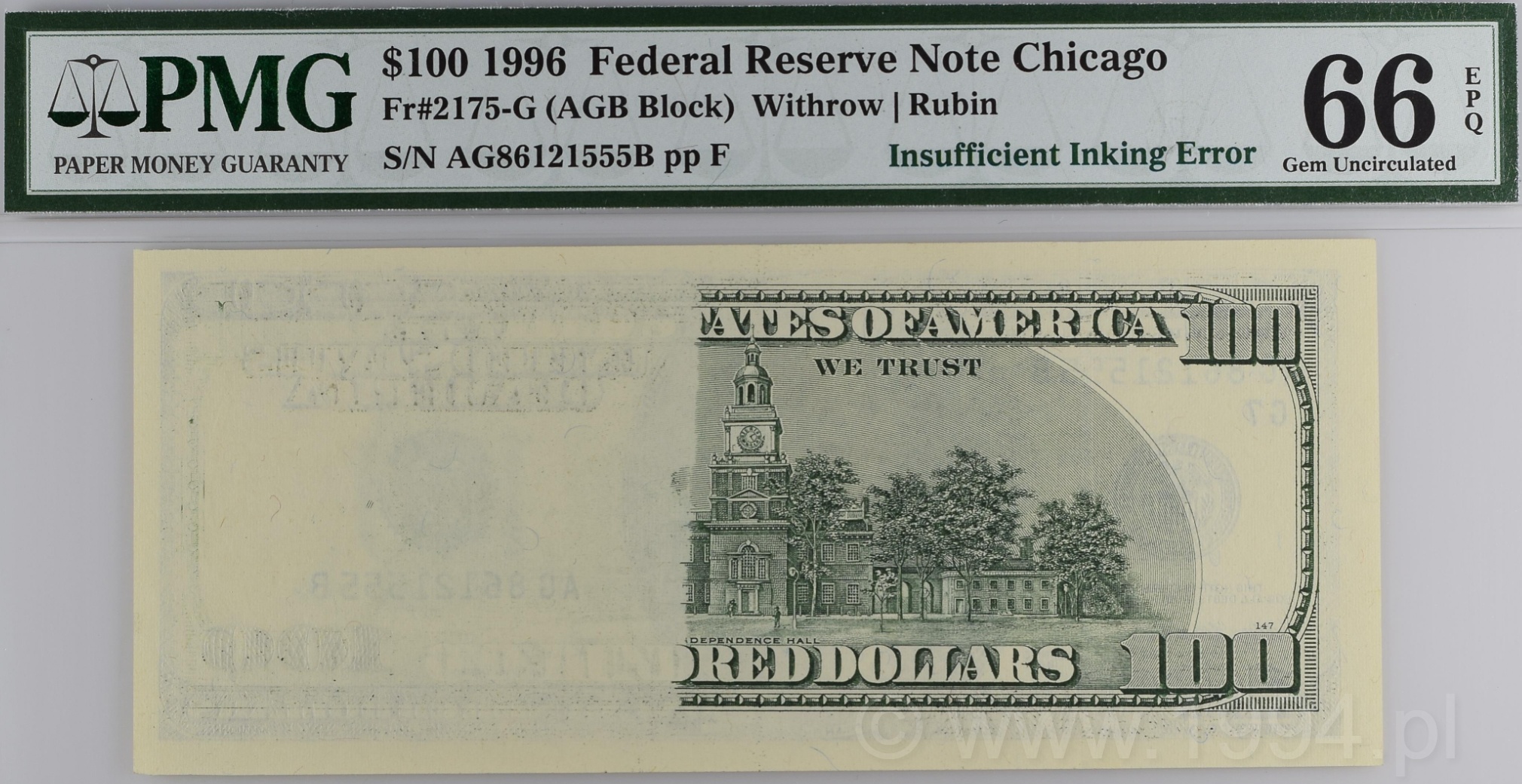Description and research notes
This 1996 100 Dollars Federal Reserve Note from the Chicago District (Friedberg 2175-G, AGB Block) presents one of the most striking examples of an Insufficient Inking Error recorded on a modern U.S. high-denomination note. The entire reverse is drastically under-inked: the normally bold depiction of Independence Hall appears as a pale, incomplete impression, with architectural outlines faintly visible but lacking depth and saturation. The obverse, however, was printed correctly, confirming that the error occurred exclusively during the second intaglio printing pass used for the back design.
Such a failure results when the intaglio plate—responsible for forcing thick, oily ink into the engraved lines—receives an uneven or insufficient coating before the sheet is pressed. In this instance, the defect likely stemmed from an improperly inked press cylinder or premature wiping of excess ink by the BEP’s wiping cloth, producing a ghost-like image instead of the deep relief expected from true intaglio pressure.
Insufficient inking errors of this magnitude are extremely uncommon on 100 Dollar notes. High-denomination sheets were printed under the Bureau of Engraving and Printing’s most rigorous quality-control protocols, and nearly all examples showing such severe defects were intercepted and destroyed. This survivor is therefore not only visually dramatic but also a rare testament to the limits of quality assurance at a time when the BEP was modernizing production with computer-assisted presses and updated ink formulations.
Certified PMG 66 EPQ Gem Uncirculated, the note retains flawless paper originality, sharp embossing, and a bold, perfectly centered face. The contrast between its vivid front and faded back perfectly captures the delicate balance of craftsmanship and mechanization that defined late twentieth-century American currency. It stands as an educational cornerstone for collectors studying the mechanics of BEP intaglio printing and the unpredictable artistry of true production anomalies.
